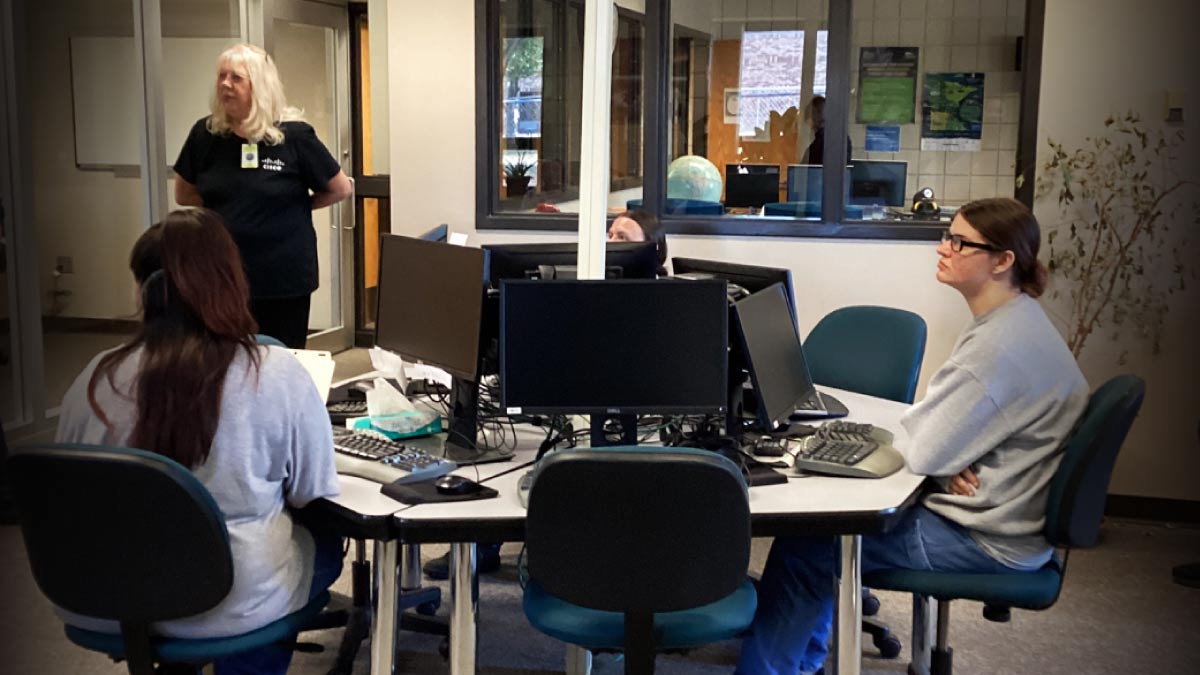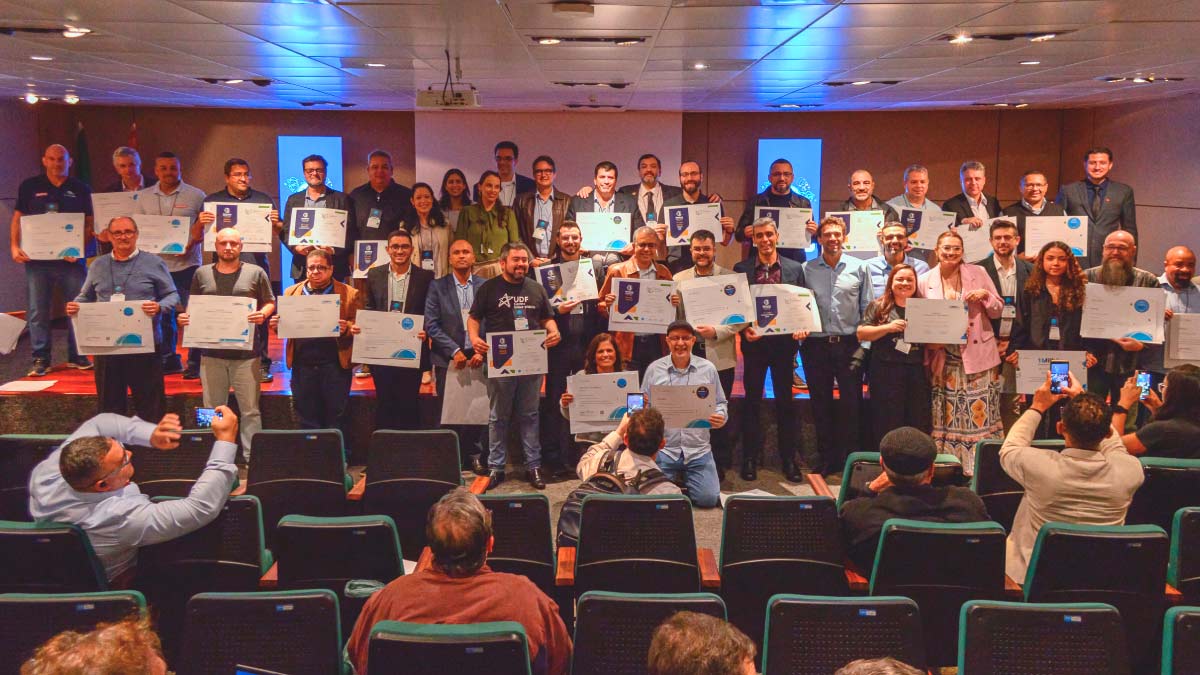“Things happen in life, and you can’t go back,” said Amie Stier, who was recently released from the Minnesota Correctional Facility at Shakopee. “All I can do is go forward.”
Helping Stier go forward is Cisco Networking Academy. After entering prison in 2019 on a non-violent drug charge, she was able to complete three levels of Networking Academy courses. Today, she’s facing the outside world with newfound confidence and hope.
For Stier and other recently incarcerated women, life after prison can seem daunting. Job searches, sobriety, finding a home, and regaining custody of children are just a few of the challenges they may face. And the social stigma of prison time can undermine it all.
That’s why real-world skills are so important — especially for an in-demand field like technology.
“At first, it was like learning a whole new language, a whole new world,” Stier said of her courses. “But it started to make sense. And I know if I could learn it in prison, I could learn more out here. It’s an in-demand field.”
For the Cisco Networking Academy, it’s one more success story in the making.
Since 1997, Networking Academy has been empowering people around the world to change their lives and step up to better-paying, fulfilling careers — to the tune of more than 20.5 million students in 190 countries. This has included an ongoing outreach to underrepresented groups, everyone from women and people of color to foster children and the incarcerated. So, the Minnesota prison was a natural fit for the Cisco Networking Academy and the company’s core purpose: powering an inclusive future for everyone.
“We work with correctional facilities around the world and in the U.S,” said Laura Quintana, vice president and general manager of Cisco Networking Academy. “The Minnesota Correctional Facility at Shakopee is another way that we are reaching women, wherever they are, so we may help build a more inclusive future. So that when they are released from prison, they will have highly employable skills. It’s an opportunity for them to change their lives, and the lives of their families.”
Skills that benefit incarcerated students, the tech industry, and society.
AnDee Flohr, a longtime member of the Shakopee prison instructional staff who’s been teaching Networking Academy classes since 2021, believes that, as a society, we all benefit when people rebuild productive lives.
“These students are going to be my neighbor, your neighbor, anybody’s neighbor, and we want them to leave this place better than when they came in,” she said. “I feel it’s crucial that they have these educational opportunities.”
A Rand Corporation study revealed that recidivism rates dropped 43 percent for those who attended educational programs. And Quintana cites an Italian prison where recidivism was reduced to zero percent for incarcerated students who had attended Cisco Networking Academy courses.
Flohr stressed that, while the challenges on the outside remain steep, the women in her classes are determined to overcome them.
“When I talk to my students about their fears,” she recounted, “they talk about inadequate housing opportunities after being released. And remember, many of our women have children; they worry about finding a job, regaining custody, then daycare. It’s a lot of layers. So, I really do think it’s crucial that we have these educational opportunities.”
One of Flohr’s soon-to-be released students shared her own thoughts on the impact the courses are having in her life.
“I chose to do Cisco Networking Academy because of the infinite opportunities that the courses provide,” said Patience, whose surname has been withheld in keeping with prison policy. “I wanted a variation of skills so that my son can be proud and hopefully follow in my footsteps. And I always feel a lot smarter after I’ve completed a course.”
‘A lot smarter’ — and a lot more employable.
Dr. Guy Diedrich is Cisco’s senior vice president and global innovation officer at Cisco, where he is responsible for the company’s Country Digital Acceleration program (CDA), as well as the Networking Academy. He spoke of the great opportunities in technology, especially security, where 3 million jobs remain unfilled globally.
“It’s estimated that 80 percent of the security jobs are going to be technician jobs,” he said. “They’re not going to require four-year degrees. They’re not going to require master’s or PhDs. So, 80 percent of those jobs are going to be technician jobs, where you can count on a two-year degree, or an equivalent certification. It’s a great opportunity for Networking Academy students.”
The women in the Minnesota program are taking full advantage of that opportunity. Clydene Stangvik, a contract worker with Cisco's Digital Impact Office and a longtime supporter of the company’s prison outreach, visited Shakopee recently and was impressed with their progress and commitment.
“You can see the dedication of these women,” Stangvik recalled. “One of them said to me, ‘people outside, like at Cisco, are willing to invest in me for when I get out. So, I’m trying to do everything I can while I’m in here to be successful.’ ”
To that end, Stangvik has arranged additional support for the women, including resume writing and mock job interviews. And more recently, Stangvik worked with the Minnesota Department of Corrections to bring Cisco certification tests into the prison, enabling students to be ready to work on Day 1 of their release.
Prison life is hard. But as Jamie, another incarcerated Networking Academy student expressed, there’s nothing like the chance for a better future to ease the strain.
“I want to take what is seen as the most negative time in my life,” she said, “and turn it into the most positive part of my life.”
For further information: How Rebecca defies age and sentence for a new start





